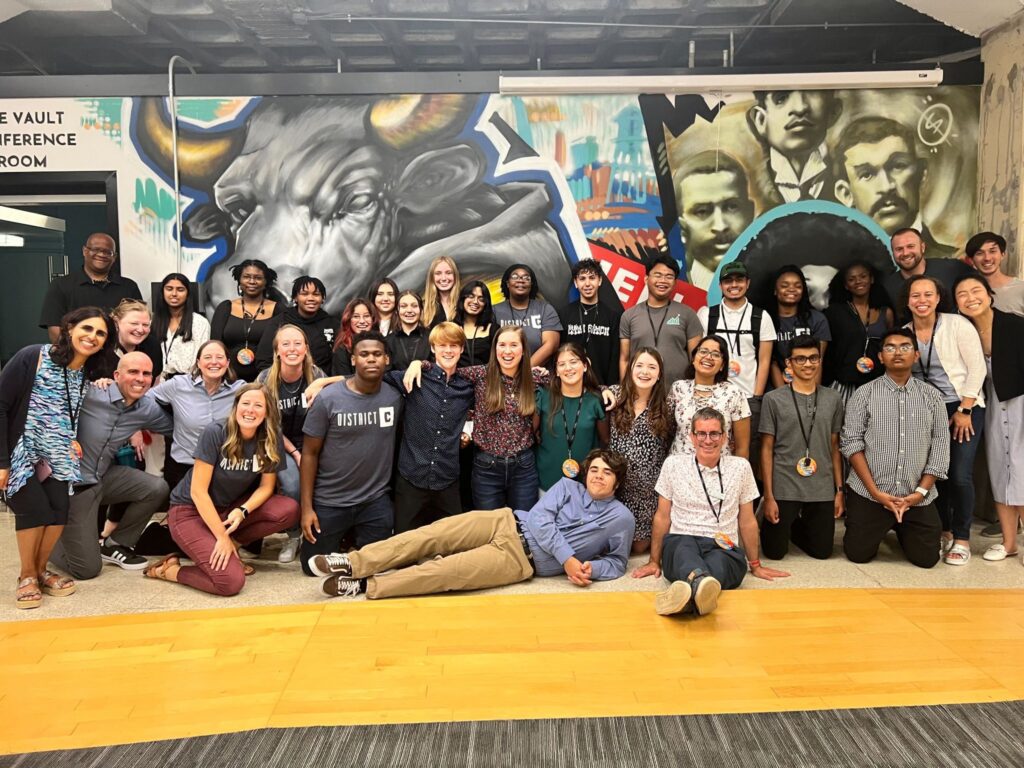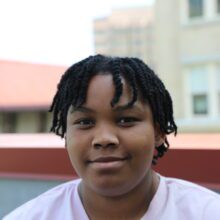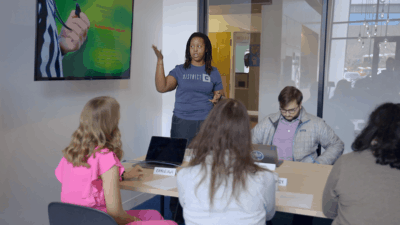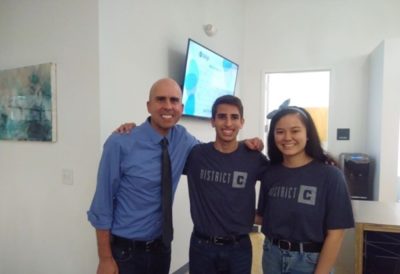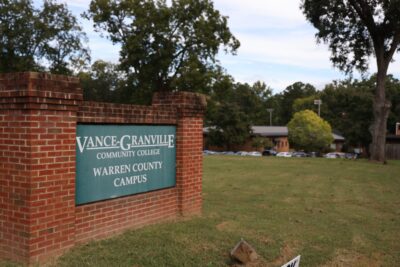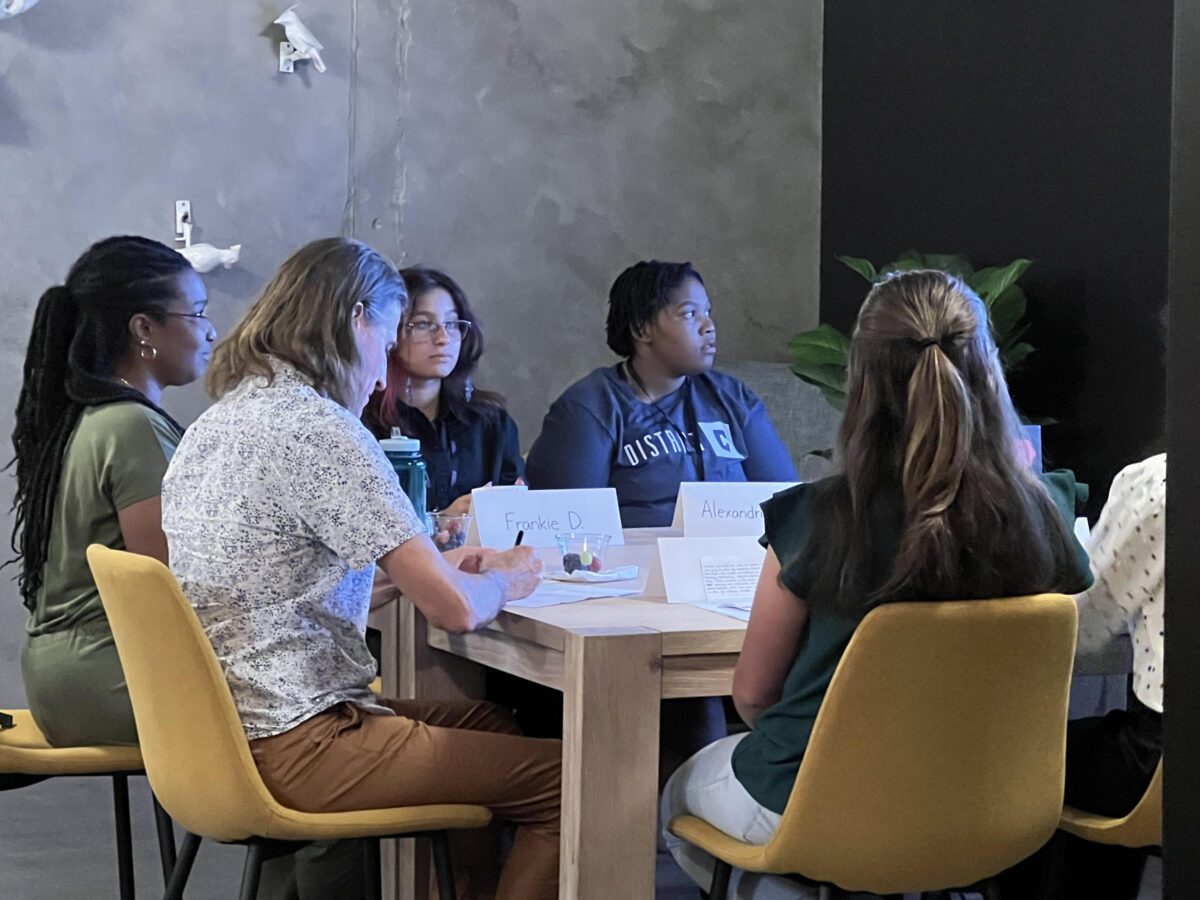
|
|
Imagine you’re having your very first meeting with a professional. You might have nervous jitters. Your palms might be a little sweaty. You might be rehearsing in your head what you’re going to say. Now imagine you’re 15.
District C is a reimagined internship experience where teams of high school students solve real problems for real businesses. An educator who is trained to be a District C Certified Coach equips students with a set of tools to help them work collectively, understand the problem through research and business partner interviews, and ultimately pitch a solution back to the business.
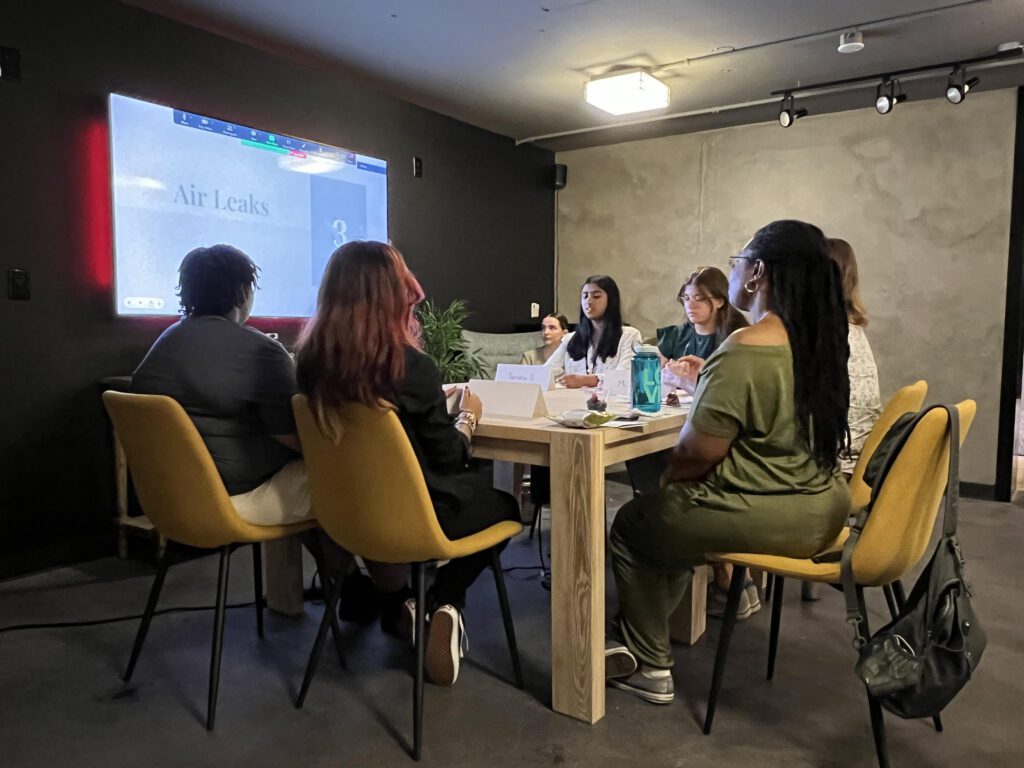
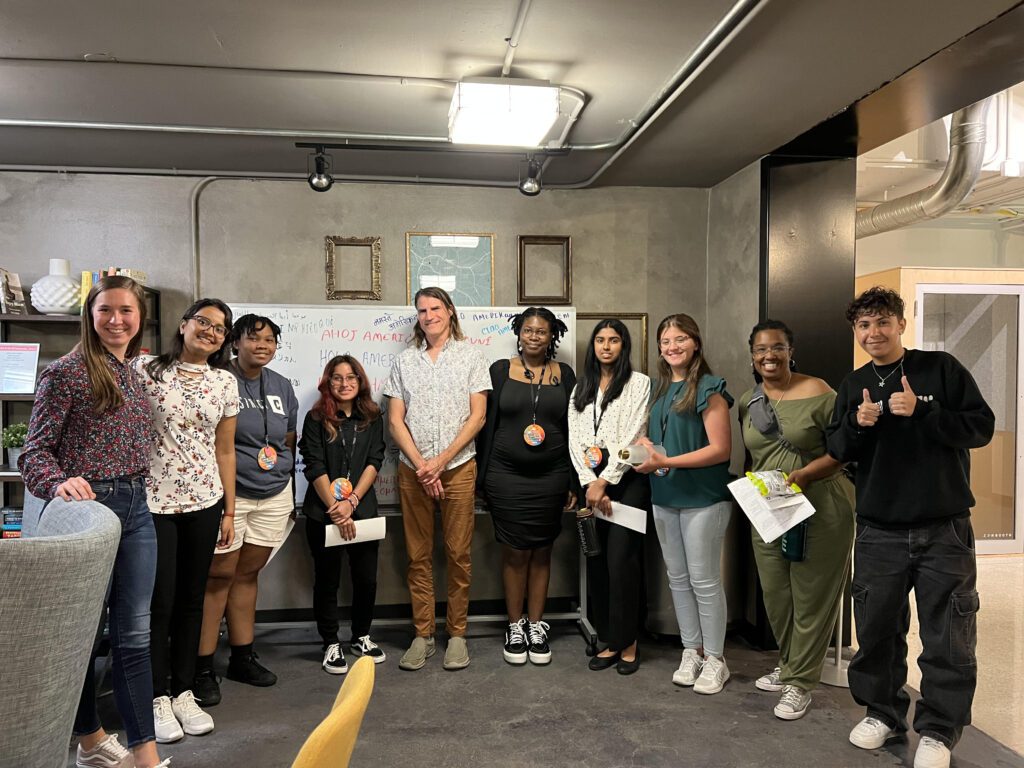
Danielle Mayber, Partnerships Manager at District C spoke with Teamship alumna Alexandria Meeks from Vance County Schools who collaborated with students from across North Carolina when she participated in the Teamship program last spring as a 9th grader and this summer as a rising 10th grader. Here is the conversation, edited for clarity and readability.
Mayber: Why did you decide to participate in the Teamship program?
Meeks: You get to partner with a real business. It was also a good opportunity, involved teamwork, and I wanted to work on my communication.
Mayber: What did it feel like to work with the business partners?
Meeks: In my first Teamship experience and business partner interaction, I had never sat down with a business and it was nerve-wracking. It was less stressful after the pitch in my first Teamship experience. The next time, I could imagine what it was going to be like and I wasn’t as nervous going in.
Mayber: What was most surprising about your experience in the program?
Meeks: It was surprising how willing the business partners were to think about using your solution. They were really positive, and you typically think of businesses as reserved or they want to seem as if they’re a perfect company. But in the first meeting with the business partners, with the questions we were asking, it was clear they genuinely wanted help with the problem. I was shocked. You don’t typically see businesses reaching out for help from high schoolers. And it was really encouraging to have support from the company. They were answering questions. They were really engaged. It was reassuring that they were actually thinking about what you said.
Mayber: Walk me through your most recent Teamship experience. What did it feel like when you got there and how did you feel when you were leaving?
Meeks: When we first started, I definitely felt nervous. Talking with teammates, working with a different business partner… you don’t know what to say. I would wait to see how other people responded before I jumped in. But my communication grew throughout Teamship.
Before, I was nervous when speaking with people. As the experience went on, I was more open expressing my ideas and opinions. When we were working together, we were blurting out ideas for solutions. Before, I would have kept an idea to myself. This time, I just expressed it, and they put it down. It felt reassuring to know that I could express my ideas without being judged.
Mayber: How do you think your experience with your team will help you in the future?
Meeks: I’m not as nervous working with new people in a new environment. That’ll help me in school projects with being able to mesh with the group and not be as reserved. You can also better understand different personalities, like how different people work so ideas and personalities don’t clash. Career-wise, at a lot of companies, you’re expected to be able to work in a team, come up with solutions, and be able to transition into that environment.
Mayber: What was the most important skill that you built?
Meeks: Researching. I go more in-depth now. I learned about shallow holes vs. deeper holes. Researching more shallow holes is like opening a bunch of different doors without walking through them versus opening fewer doors and going in and exploring.
Mayber: How do you think your Teamship experience will help you in whatever career you ultimately decide to pursue?
Meeks: Communication. Teamwork. It prepares me for the future because it’s a glimpse of how company and team dynamics work. There are new people and new environments which helps with better transitioning into being able to work with different teams rather than having to take weeks to get acclimated to that team. You can go into it quicker and adapt. We also learned tools to be able to organize our thoughts.
Mayber: What would you say to a student who is considering doing Teamship?
Meeks: It’s a good opportunity to advance your skills! You might be nervous, but after that you’ll be excited and want to do it many more times. That nervousness might hold students back since they don’t know what to expect and it could be challenging. You’re going in not knowing who your team members are or the dynamic the company will bring. But the first time you’re around them, you’ll get to know everyone and build trust. And in life, you’ll have different things that make you really nervous and that shouldn’t hold you back from great opportunities. Do it. Give it a try.
Mayber: What would you say to a school who is considering adopting this program as an option for students?
Meeks: They should do it because it’s a good opportunity for students to grow and develop. It gives you communication skills to work with different business partners. It helps you in the future to be able to get a job and maintain it. Working with a real business partner is good exposure. It’s a real environment rather than simulated. Nothing is better than the actual thing. Yeah, you can do a project, but it won’t prepare a student for an actual business once they get older. Rather than a random scenario, it’s an actual problem they’re facing in today’s world.
